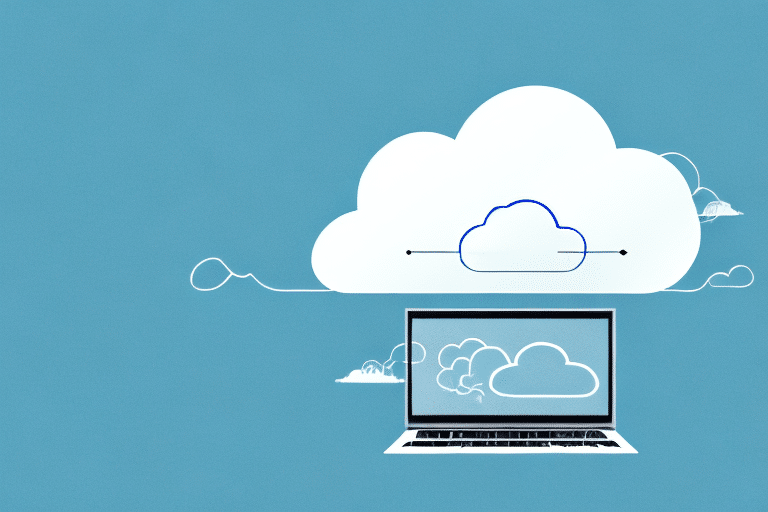Unlocking the power of big data has become increasingly vital in today’s digital landscape. As businesses strive to gain valuable insights and make data-driven decisions, managing and monitoring big data workloads has become a top priority. And when it comes to harnessing the potential of big data, Google Cloud Platform (GCP) stands out as an exceptional solution.
In this blog post, we will explore how GCP empowers organizations to effectively manage and monitor their big data workloads. From collecting vast amounts of data with GCP datasets to leveraging powerful analytics tools for in-depth analysis, we’ll delve into the world of possibilities that await those who embrace GCP for their big data needs. So buckle up as we embark on this exciting journey!
Managing Big Data Workloads on Google Cloud Platform
One of the biggest challenges in today’s data-driven world is managing and analyzing large volumes of data. This is where Google Cloud Platform (GCP) comes into play, offering a wide range of tools and services to help businesses effectively handle their big data workloads.
With GCP, you have access to powerful storage options like Cloud Storage and Bigtable, which can handle massive amounts of structured and unstructured data. These scalable solutions ensure that your data is stored securely and readily available for analysis.
In addition to storage, GCP offers robust analytics capabilities through services like BigQuery and Dataflow. BigQuery allows you to run fast SQL queries on huge datasets without any infrastructure management overhead. It’s perfect for ad-hoc analysis or regular reporting needs.
Dataflow, on the other hand, provides a fully managed service for real-time stream processing and batch processing pipelines. With its intuitive programming model, you can easily build complex workflows to process streaming or historical data in a scalable manner.
To further enhance your big data management experience, GCP also offers advanced machine learning tools such as AutoML and TensorFlow. These tools enable you to extract valuable insights from your datasets by building sophisticated models without extensive coding knowledge.
Managing big data workloads on Google Cloud Platform gives businesses the agility they need in today’s rapidly evolving digital landscape. By leveraging GCP’s comprehensive suite of services for collecting, storing, analyzing, and visualizing large datasets with ease – organizations can make informed decisions faster than ever before!
Collecting Big Data with Google Cloud Platform Datasets
Big data is everywhere, and organizations are constantly grappling with the challenge of collecting and managing it effectively. Fortunately, Google Cloud Platform (GCP) offers a robust solution for collecting big data through its powerful dataset management capabilities.
With GCP datasets, you can easily gather vast amounts of data from various sources such as social media platforms, IoT devices, or even internal systems. The flexibility of GCP allows you to collect structured and unstructured data seamlessly.
One key advantage of using GCP for collecting big data is its scalability. As your dataset grows larger over time, GCP can effortlessly handle the increased volume without compromising performance. This means that you can collect and store massive amounts of data without worrying about storage limitations.
Furthermore, GCP offers a wide range of tools that make it easier to organize and manage your datasets. You can leverage features like partitioning and clustering to optimize query performance and improve overall efficiency when working with large datasets.
Additionally, GCP provides options for automating the collection process through scheduled jobs or event-driven triggers. This ensures that your dataset remains up-to-date by automatically pulling in new information as it becomes available.
Moreover, security is a top priority when dealing with big data collection. With GCP’s robust security measures in place – including encryption at rest and transit – you can have peace of mind knowing that your collected datasets are protected from unauthorized access.
Analyzing Big Data with Google Cloud Platform Analytics
When it comes to managing and monitoring big data workloads, analyzing the data is a crucial step. With Google Cloud Platform (GCP), you have access to powerful analytics tools that can help you make sense of your data and extract valuable insights.
One such tool is BigQuery, which allows you to run SQL queries on large datasets quickly and efficiently. Whether you’re looking for patterns, trends, or correlations in your data, BigQuery can handle it all. Plus, its serverless architecture means that you don’t have to worry about provisioning resources or managing infrastructure.
Another useful analytics tool offered by GCP is Cloud Dataprep. This visual data preparation tool makes it easy for non-technical users to clean and transform raw data into a format that’s ready for analysis. With its intuitive interface and built-in machine learning capabilities, anyone can become an expert at preparing their data for analysis.
For more advanced analytics needs, GCP offers solutions like Cloud Dataflow and AI Platform Notebooks. Cloud Dataflow allows you to build scalable batch or streaming pipelines using Apache Beam while AI Platform Notebooks provides a collaborative environment for developing and running machine learning models.
With these powerful analytics tools at your disposal, analyzing big data on GCP becomes a breeze. You can uncover hidden patterns in your data, gain valuable insights into customer behavior, optimize business processes, and much more.
So why wait? Start leveraging the power of Google Cloud Platform Analytics today and unlock the full potential of your big data workloads!
Conclusion
In today’s data-driven world, managing and monitoring big data workloads is essential for businesses to stay competitive. Google Cloud Platform provides a robust set of tools and services that can help organizations effectively collect and analyze massive amounts of data.
With Google Cloud Platform Datasets, you can easily collect and ingest large volumes of data from various sources. The flexibility and scalability offered by GCP enable you to seamlessly handle diverse types of datasets, whether structured or unstructured.
Once the data is collected, GCP Analytics comes into play. With powerful analytics tools like BigQuery and Dataflow, you can analyze vast amounts of data in real-time or batch processing mode. These tools offer advanced querying capabilities, machine learning integration, and visualization options to extract valuable insights from your big data.
Moreover, Google Cloud Platform ensures high availability, reliability, and security for your big data workloads through its global infrastructure. You can trust that your sensitive information will be handled with utmost care while benefiting from the scalability needed to process massive datasets efficiently.
By leveraging Google Cloud Platform’s comprehensive suite of solutions for managing and monitoring big data workloads, businesses can unlock the full potential hidden within their vast amounts of information. This empowers them to make informed decisions faster than ever before—driving innovation, improving customer experiences, and gaining a competitive edge in today’s digital landscape.
So why wait? Dive into the world of big data with Google Cloud Platform today!





